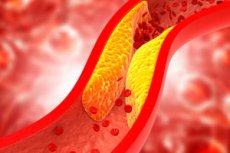Thrombectomy improves outcomes in acute stroke and large infarctions
Last reviewed: 14.06.2024

All iLive content is medically reviewed or fact checked to ensure as much factual accuracy as possible.
We have strict sourcing guidelines and only link to reputable media sites, academic research institutions and, whenever possible, medically peer reviewed studies. Note that the numbers in parentheses ([1], [2], etc.) are clickable links to these studies.
If you feel that any of our content is inaccurate, out-of-date, or otherwise questionable, please select it and press Ctrl + Enter.

According to a study published in the New England Journal of Medicine, patients with acute stroke and major infarction, thrombectomy in combination with drug treatment leads to better functional results and reduced mortality.
Vincent Costala, MD, PhD, of Guy de Chauliac Hospital in Montpellier, France, and colleagues prescribed patients with proximal cerebral vessel occlusion in the anterior circulation and large infarction detected on magnetic resonance imaging or computed tomography within 6.5 hours of the onset of symptoms, endovascular thrombectomy and receiving medication (thrombectomy group; 166 patients) or medication alone (control group; 167 patients).
Due to results from similar trials favoring thrombectomy, the trial was stopped early. The researchers found that about 35 percent of patients received thrombolytic therapy. The median modified Rankin scale score at 90 days was 4 in the thrombectomy group and 6 in the control group (overall odds ratio, 1.63; 95% confidence interval, 1.29-2.06).
At 90 days, all-cause mortality was 36.1% in the thrombectomy group and 55.5% in the control group (adjusted relative risk, 0.65; 95% confidence interval, 0.50-0.84); the percentage of patients with symptomatic intracranial hemorrhage was 9.6% and 5.7%, respectively (adjusted relative risk, 1.73; 95% confidence interval, 0.78-4.68).
“Use of thrombectomy plus medical management within seven hours of symptom onset resulted in a lower modified Rankin Scale score at 90 days after randomization than medical management alone,” the authors write.
The study was supported by the University Hospital of Montpellier thanks to an unrestricted grant from a consortium of medical companies (Medtronic, Stryker, Balt Extrusion, MicroVention and Cerenovus).
